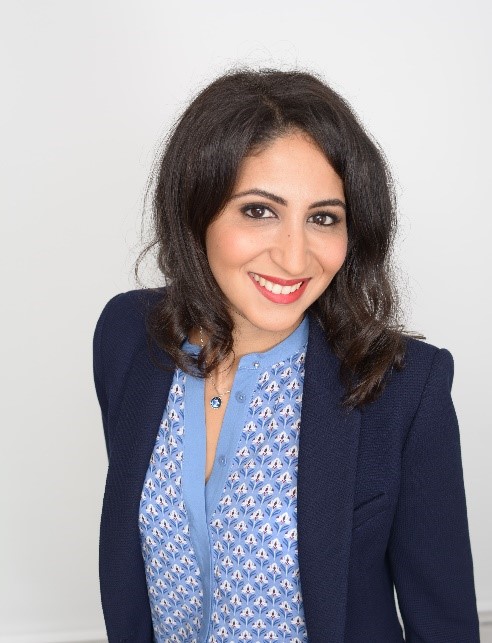Dr Amel Makhlouf MCIArb
Dr Amel Makhlouf is a French qualified lawyer specialised in international arbitration, with a banking and finance background. She has been appointed as administrative secretary to arbitral tribunals in international arbitral proceedings conducted under a variety of institutional rules (including ICC, HKIAC, DIAC, BCDR-AAA and UNCITRAL) in construction, banking and finance, energy, and information technology related proceedings. Dr Amel Makhlouf is also a lecturer in law at the Université Paris 1 Pantheon-Sorbonne.
Why have you decided to specialise in ADR? What attracted you to this area of law?
Specialising in ADR provides you with the opportunity to operate in a truly international environment governed by a diversity of laws and jurisdictions, of languages, of practitioners and of industries. ADR involves a variety of legal issues and therefore requires a wide range of expertise that is stimulating for any enthusiastic practitioner who enjoys being challenged intellectually. In addition, I am attracted to the procedural flexibility and substantial freedom conferred to Parties in determining their own resolution process through ADR in comparison to traditional litigation proceedings.
What do you consider to be the biggest challenge in your career as a female practitioner in arbitration/ mediation?
I have faced numerous challenges in my career which went beyond simply ‘being a woman’. However, if I was to focus on that specific aspect, I would say that I often felt the need to convince people further and to gain recognition prior to achieving a goal instead of being persuaded that I was capable of doing it. Being convinced of your own credibility is more difficult given the lack of female's substantive representation in leadership positions.
By way of example, I had been appointed as a tribunal secretary in arbitral proceedings based in Hong Kong, London, Dubai, Abu Dhabi, Manama, Tehran or Paris. All of those proceedings were conducted by an all-male tribunal.
What do you consider as the biggest challenge for the ADR in the future?
As an arbitration practitioner, I am especially interested to know how technology will impact the future practice of international arbitration. For instance, how to preserve confidentiality in commercial arbitration through the increased use of information technology? How to enhance efficiency through the use of technology in arbitral proceedings?
How has a membership with the Chartered Institute of Arbitrators benefitted your career?
Being a member of the CIArb continues to enable me to meet with fellow ADR practitioners from a diverse array backgrounds and jurisdictions. It has also provided me with the opportunity to widen my network and enhance my visibility in international arbitration.
If you had a time machine, what piece of advice would you give to yourself at the beginning of your career in ADR?
Language skills are a strong advantage in the field of ADR. I speak French, English, Spanish and have started to learn Arabic few years ago. If I had a time machine, I would have dedicated sufficient amount of time to learning Arabic at an earlier stage. Being able to conduct dispute resolution proceedings in Arabic is an invaluable asset within the field and should, in my view, be seen as a matter of efficiency.
If you could meet for a dinner a famous person, dead or alive, who would that be?
Nelson Mandela’s life and fights against discrimination constructed on various grounds including race, gender, ethnic or social origin, colour, and disability, have always inspired me. Throughout his fights, Mandela has adopted an inclusive approach for justice which I find particularly interesting.
Being a female practitioner in a predominantly male profession is challenging, but being a disabled lawyer in a wheelchair in a dominant and dominating world of the so-called non-disabled is even more challenging. The fight for diversity in the ADR field should therefore adopt an inclusive approach, considering more parameters other than gender parity.
